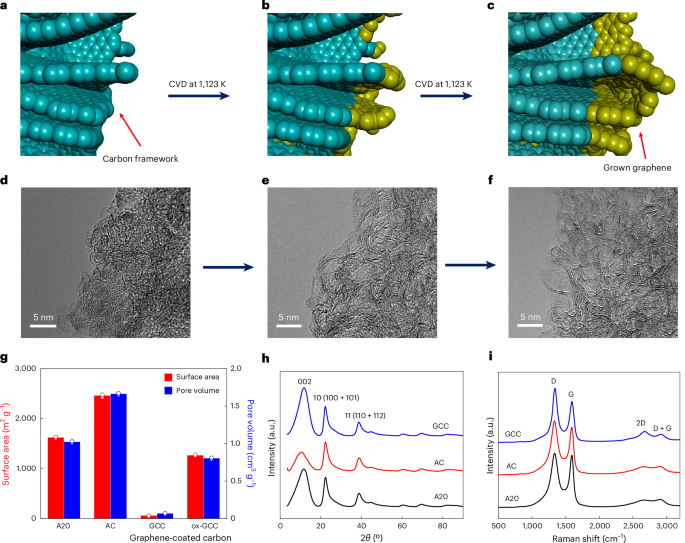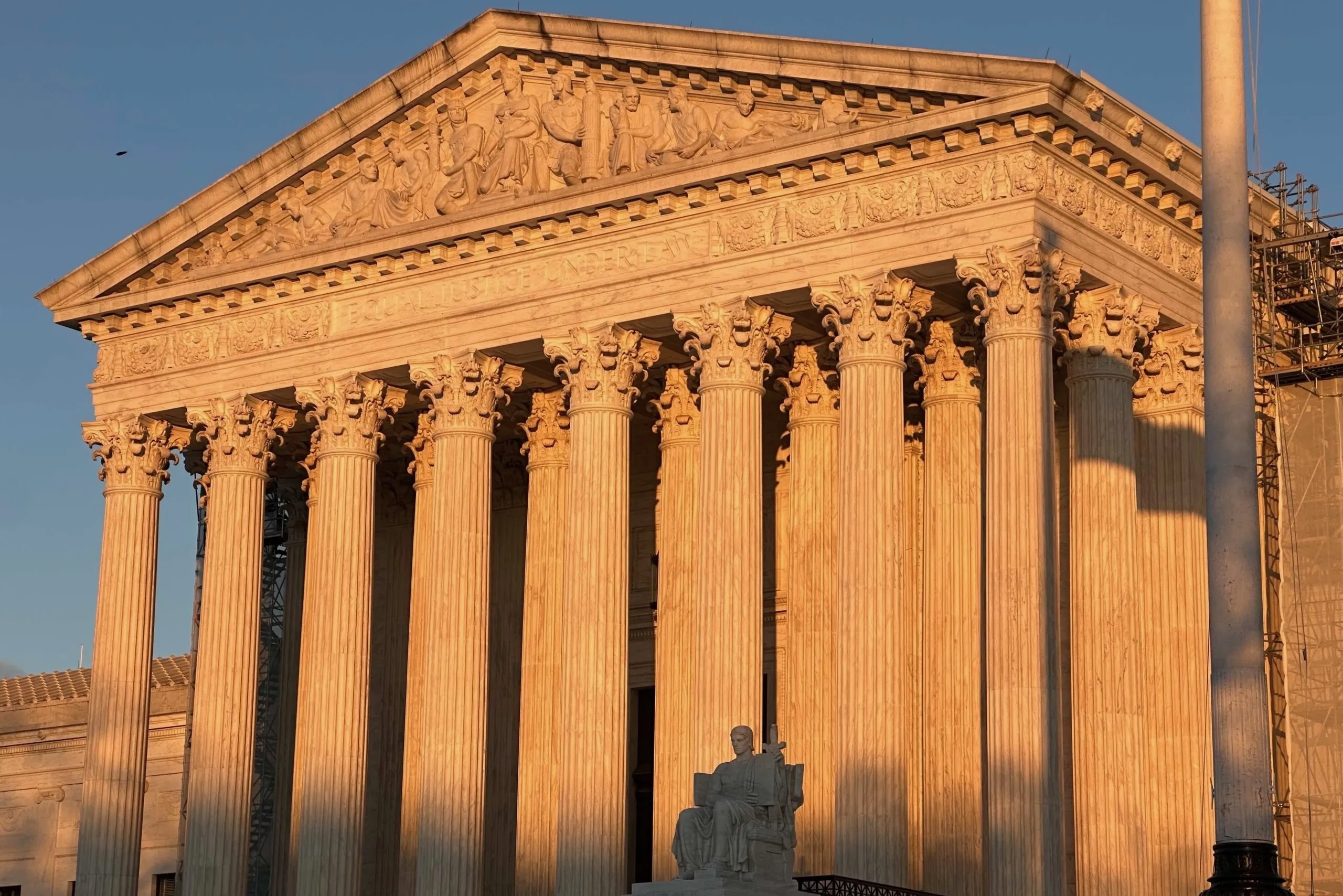Government contractors’ defenses, election challenges, and intellectual disability in capital cases
The Relist Watch column examines cert petitions that the Supreme Court has “relisted” for its upcoming conference. A short explanation of relists is available here. The Supreme Court is making good progress in sorting through the current relists. This week it disposed of four. It was good news for the petitioner in Fernandez v. United States, involving the scope of a statute that gives judges discretion to reduce criminal sentences for “extraordinary and compelling reasons.” The court will consider whether those “extraordinary and compelling reasons” include doubt about guilt that may also be alleged as grounds for vacatur of a sentence under 28 U.S.C. § 2255. The court is now holding a second relisted petition raising a similar issue, Elliott v. United States, pending disposition in Fernandez. The Supreme Court declined review in 15-time relist Apache Stronghold v. United States, however, which challenged a federal land transfer that would facilitate copper mining at Oak Flat, a site sacred to the Western Apache. Justice Neil Gorsuch, joined by Justice Clarence Thomas, dissented from the denial, emphasizing that the planned mining operations would permanently destroy a central place of worship, preventing the Apaches from practicing essential religious ceremonies that cannot occur elsewhere. The court also denied review in 10-time relist L.M. v. Middleborough, involving a Massachusetts middle-school student who was barred from wearing to school a shirt stating “There Are Only Two Genders.” The U.S. Court of Appeals for the 1st Circuit upheld the school’s decision, finding no First Amendment violation. Justice Samuel Alito, joined by Thomas, dissented from the denial of cert, arguing that the school engaged in viewpoint discrimination by promoting gender fluidity while silencing opposing views. Thomas, ever the originalist, also wrote a separate opinion that reiterated his skepticism of the seminal student-speech case Tinker v. Des Moines Independent Community School District, yet emphasized that even under Tinker, the school’s actions were unjustified. That brings us to this week’s conference, in which there are 143 petitions and applications on the Supreme Court’s docket. Four of these are newly relisted cases. Government contractors’ defenses to torts The GEO Group, Inc. v. Menocal arises from a class action brought by former immigration detainees at a private detention facility in Aurora, Colorado, operated by The GEO Group, Inc. under contract with U.S. Immigration and Customs Enforcement. The plaintiffs claim that GEO required detainees to clean common areas under threat of punishment – starting with the loss of TV and telephone privileges – potentially including solitary confinement. According to the plaintiffs, there was also a separate voluntary work program under which detainees could do various jobs, but for which they were paid just $1 per day. The class action alleged violations of the Trafficking Victims Protection Act and Colorado common law prohibitions against unjust enrichment. GEO asserted that it had derivative sovereign immunity under the 1940 Supreme Court case Yearsley v. W.A. Ross Construction Co., arguing that it was merely executing government directives and was thus immune from suit. But the district court denied GEO at summary judgment, holding that the challenged policies were not required by the ICE contract. The U.S. Court of Appeals for the 10th Circuit subsequently dismissed GEO’s appeal for lack of appellate jurisdiction, holding that denial of Yearsley immunity is not an immediately appealable collateral order. GEO now seeks Supreme Court review, arguing that the decision deepens a 5-3 circuit split on whether Yearsley-based claims of derivative sovereign immunity can be reviewed before final judgment. GEO’s cert petition insists that denying immediate review frustrates the very purpose of immunity: to avoid litigation burdens in the first place. Supporting briefs from groups including the Professional Services Council warn the lower court’s ruling may chill contractor participation in federal programs. But the former detainees counter that Yearsley is merely a merits defense – not an immunity from suit – and contend the issue is too fact-bound for interlocutory appeal. According to GEO, three new courts of appeals have weighed in since the Supreme Court last considered the issue in CACI Premier Technology v. al Shimari. Although the court denied review of CACI in 2021, in that case the government – in response to the court’s invitation – argued that Supreme Court review is warranted, even though it takes the view that Yearsley immunity is not immediately appealable. Perhaps the time for review has finally arrived. Immunity of federal contractors In 2016, an Afghan national working under Fluor Corporation at Bagram Airfield in Afghanistan, employed pursuant to a Pentagon program encouraging the employment of Afghan citizens, built
The Relist Watch column examines cert petitions that the Supreme Court has “relisted” for its upcoming conference. A short explanation of relists is available here.
The Supreme Court is making good progress in sorting through the current relists. This week it disposed of four. It was good news for the petitioner in Fernandez v. United States, involving the scope of a statute that gives judges discretion to reduce criminal sentences for “extraordinary and compelling reasons.” The court will consider whether those “extraordinary and compelling reasons” include doubt about guilt that may also be alleged as grounds for vacatur of a sentence under 28 U.S.C. § 2255. The court is now holding a second relisted petition raising a similar issue, Elliott v. United States, pending disposition in Fernandez.
The Supreme Court declined review in 15-time relist Apache Stronghold v. United States, however, which challenged a federal land transfer that would facilitate copper mining at Oak Flat, a site sacred to the Western Apache. Justice Neil Gorsuch, joined by Justice Clarence Thomas, dissented from the denial, emphasizing that the planned mining operations would permanently destroy a central place of worship, preventing the Apaches from practicing essential religious ceremonies that cannot occur elsewhere.
The court also denied review in 10-time relist L.M. v. Middleborough, involving a Massachusetts middle-school student who was barred from wearing to school a shirt stating “There Are Only Two Genders.” The U.S. Court of Appeals for the 1st Circuit upheld the school’s decision, finding no First Amendment violation. Justice Samuel Alito, joined by Thomas, dissented from the denial of cert, arguing that the school engaged in viewpoint discrimination by promoting gender fluidity while silencing opposing views. Thomas, ever the originalist, also wrote a separate opinion that reiterated his skepticism of the seminal student-speech case Tinker v. Des Moines Independent Community School District, yet emphasized that even under Tinker, the school’s actions were unjustified.
That brings us to this week’s conference, in which there are 143 petitions and applications on the Supreme Court’s docket. Four of these are newly relisted cases.
Government contractors’ defenses to torts
The GEO Group, Inc. v. Menocal arises from a class action brought by former immigration detainees at a private detention facility in Aurora, Colorado, operated by The GEO Group, Inc. under contract with U.S. Immigration and Customs Enforcement. The plaintiffs claim that GEO required detainees to clean common areas under threat of punishment – starting with the loss of TV and telephone privileges – potentially including solitary confinement. According to the plaintiffs, there was also a separate voluntary work program under which detainees could do various jobs, but for which they were paid just $1 per day.
The class action alleged violations of the Trafficking Victims Protection Act and Colorado common law prohibitions against unjust enrichment. GEO asserted that it had derivative sovereign immunity under the 1940 Supreme Court case Yearsley v. W.A. Ross Construction Co., arguing that it was merely executing government directives and was thus immune from suit. But the district court denied GEO at summary judgment, holding that the challenged policies were not required by the ICE contract. The U.S. Court of Appeals for the 10th Circuit subsequently dismissed GEO’s appeal for lack of appellate jurisdiction, holding that denial of Yearsley immunity is not an immediately appealable collateral order.
GEO now seeks Supreme Court review, arguing that the decision deepens a 5-3 circuit split on whether Yearsley-based claims of derivative sovereign immunity can be reviewed before final judgment. GEO’s cert petition insists that denying immediate review frustrates the very purpose of immunity: to avoid litigation burdens in the first place. Supporting briefs from groups including the Professional Services Council warn the lower court’s ruling may chill contractor participation in federal programs. But the former detainees counter that Yearsley is merely a merits defense – not an immunity from suit – and contend the issue is too fact-bound for interlocutory appeal.
According to GEO, three new courts of appeals have weighed in since the Supreme Court last considered the issue in CACI Premier Technology v. al Shimari. Although the court denied review of CACI in 2021, in that case the government – in response to the court’s invitation – argued that Supreme Court review is warranted, even though it takes the view that Yearsley immunity is not immediately appealable. Perhaps the time for review has finally arrived.
Immunity of federal contractors
In 2016, an Afghan national working under Fluor Corporation at Bagram Airfield in Afghanistan, employed pursuant to a Pentagon program encouraging the employment of Afghan citizens, built an explosive vest while unsupervised. He then detonated it, grievously injuring U.S. Army Specialist Winston Hencely. Hencely sued Fluor in tort, alleging negligent hiring, supervision, and retention under South Carolina law, as well as third-party contract claims.
The U.S. Court of Appeals for the 4th Circuit affirmed the district court’s dismissal of the case, holding that the tort claims were barred by a form of federal preemption based on the “combatant activities” exception to the Federal Tort Claims Act. Although the appeals court recognized this provision normally bars claims only against the federal government, it determined this applied to claims against Fluor as a contractor since Fluor was “integrated into” combat operations and was working under the command of the military.
In Hencely v. Fluor Corporation, Hencely seeks Supreme Court review to resolve whether federal contractors enjoy immunity from state-law tort suits because they are integrated into combat operations, even when, as alleged here, they violate military orders and contractual duties. Hencely contends the 4th Circuit applied a new preemption theory unmoored from the FTCA’s text or Supreme Court precedent, extending the 1988 Supreme Court decision Boyle v. United Technologies Corporation, which immunized government contractors from liability under certain circumstances, beyond recognition. A brief from West Virginia and eleven other states supporting Hencely echoes that concern, contending the ruling “rewrote the statute” to provide sweeping immunity for private contractors. Fluor counters that the ruling merely applies settled Boyle principles to war-zone logistics and implicates no true circuit split. If the court wants to revisit Boyle or cabin the FTCA’s combat-zone carve-out, this could be a case to watch.
Standing in election law cases
Bost v. Illinois State Board of Elections features a constitutional challenge to an Illinois law requiring the counting of mail-in ballots that arrive up to two weeks after Election Day, so long as they are postmarked (or certified) by Election Day. Representative Michael Bost, R-Ill., and two former presidential electors sued under the Constitution’s elections and electors clauses, arguing that the extended ballot receipt deadline unlawfully extends federal election timing beyond what 2 U.S.C. § 7 and 3 U.S.C. § 1 allow. They also invoked candidate-specific injuries, including campaign resource burdens and the alleged dilution of the “accurate vote tally.”
But the U.S. Court of Appeals for the 7th Circuit didn’t buy it. In an opinion by Judge John Lee, the court dismissed for lack of standing, stating the harm to the plaintiffs as voters claiming their votes were diluted by late-returned ballots were the sort of “generalized grievances” that failed to distinguish these plaintiffs from anyone else in Illinois. A majority of the 7th Circuit also rejected Bost’s claims as a candidate, declaring it speculative that late-received votes made any difference. Judge Michael Scudder dissented in part, saying that Bost was injured as a candidate because the law increased his campaign costs by requiring him to monitor late-arriving votes.
Bost argues that the 7th Circuit’s decision created a circuit split. In support of this, he points to the U.S. Court of Appeals for the 8th Circuit’s decision in Carson v. Simon (recognizing candidates’ interest in accurate vote tallies) and precedents from the U.S Court of Appeals for the 5th Circuit like Tex. Democratic Party v. Benkiser and Republican National Committee v. Wetzel (accepting campaign costs as a cognizable injury).
Illinois contends that no such split exists, as those cases involved competitive injuries not alleged here. Supporting briefs, from groups including the Gun Owners of America, warn of a post-2020 trend tightening standing rules, risking unreviewable election law abuses. With around half the states adopting similar postmarked-by-Election-Day counting policies, this case may catch the court’s eye.
Intellectual disability in capital cases
Over two decades ago, the Supreme Court held in Atkins v. Virginia that the Eighth Amendment prohibits the execution of individuals who are intellectually disabled. In Hall v. Florida and Moore v. Texas, the court then adopted a definition of intellectual disability that looked to (among other factors) “significantly subaverage intellectual functioning,” and in particular, whether “the lower end of [the offender’s] [IQ] score range falls at or below 70.”
Joseph Clifton Smith was convicted and sentenced to death for murdering Durk Van Dam in order to steal his boots, tools, and $140. In repeated IQ tests, Smith scored 78, 75, 74, 74, and 72. On habeas review, the district court held that Smith was intellectually disabled, noting among other things that because his 72 score had a three-point margin of error, his IQ could be as low as 69. The U.S. Court of Appeals for the 11th Circuit affirmed.
In 2023, Alabama petitioned for review and after a remarkable 21 relists, the Supreme Court summarily vacated the judgment and remanded, perhaps simply kicking the can down the road. Specifically, the court said the 11th Circuit’s opinion could be read as granting review because a single one of Smith’s tests could have been as low as 69, and that interpretation “would suggest a per se rule that the lower end of the standard-error range for an offender’s lowest score is dispositive.” On the other hand, the court noted that the 11th Circuit also approvingly cited the district court’s determination that Smith’s lowest score was not an outlier when considered together with his higher scores. According to the court, “[t]hat analysis would suggest a more holistic approach to multiple IQ scores that considers the relevant evidence, including as appropriate any relevant expert testimony.”
On remand, the 11th Circuit made clear that the latter (“holistic”) reading was the correct one, and that it had not relied on a single IQ test. The appeals court wrote that “to be even more precise, based on the complete record, including any relevant expert testimony, we concluded that the district court did not clearly err in its factual findings that Smith suffered from significantly subaverage intellectual function, that he had significant and substantial deficits in adaptive behavior, and that he manifested those qualities before he turned 18.”
Alabama is now back at the Supreme Court. In Hamm v. Smith, Alabama contends that the courts below misapplied Hall and Moore by proceeding to the adaptive-functioning prong of the intellectual-disability test despite no IQ score clearly at or below 70. That, Alabama says, guts the rule requiring defendants to prove each Atkins prong – including “significantly subaverage intellectual functioning” – by a preponderance of the evidence. Instead, the 11th Circuit supposedly allowed Smith to proceed based on the possibility that his “true” IQ could fall within range, even if his scores (ranging from 72 to 78 post-age-18) never showed a 70. Smith responds that the petition is a factbound request to second-guess credibility determinations after a full evidentiary hearing, and no real circuit split exists.
The United States filed a rare (or at least previously rare) unsolicited cert-stage amicus brief supporting Alabama, arguing the court should take the case to clarify that states may require a threshold IQ finding before turning to adaptive deficits. The government also asks the court to grant review to provide guidance on how multiple IQ scores should be evaluated in the aggregate – a surprisingly uncharted area two decades post-Atkins. Nineteen states have also filed an amicus brief supporting Alabama. Expect a decision soon on whether this becomes Atkins’ next chapter – a grant seems reasonably likely.
That’s all for this week. Tune in Monday to find out whether the court will be adding anything to the fall argument calendar.
New Relists
Bost v. Illinois State Board of Elections, 24-568
Issue: Whether petitioners, as federal candidates, have pleaded sufficient factual allegations to show Article III standing to challenge state time, place, and manner regulations concerning their federal elections.
(relisted after the May 22 conference)
The GEO Group, Inc. v. Menocal, 24-758
Issue: Whether an order denying a government contractor’s claim of derivative sovereign immunity is immediately appealable under the collateral-order doctrine.
(relisted after the May 22 conference)
Issues: (1) Whether, under a proper application of Atkins v. Virginia, a state can require a claimant to prove an IQ of 70 or less by a preponderance of the evidence; and (2) whether courts evaluating multiple IQ scores must find that every valid score of “about” 75 or less supports an Atkins claim.
(relisted after the May 22 conference)
Hencely v. Fluor Corporation, 24-924
Issue: Whether Boyle v. United Technologies Corp. should be extended to allow federal interests emanating from the Federal Tort Claims Act’s combatant-activities exception to preempt state tort claims against a government contractor for conduct that breached its contract and violated military orders.
(relisted after the May 22 conference)
Returning Relists
Ocean State Tactical, LLC v. Rhode Island, 24-131
Issues: (1) Whether a retrospective and confiscatory ban on the possession of ammunition-feeding devices that are in common use violates the Second Amendment; and (2) whether a law dispossessing citizens without compensation of property that they lawfully acquired and long possessed without incident violates the takings clause of the Fifth Amendment.
(Relisted after the Jan. 10, Jan. 17, Jan. 24, Feb. 21, Feb. 28, March 7, March 21, March 28, April 4, April 17, April 25, May 2, May 15 and May 22 conferences.)
Issue: Whether the Constitution permits Maryland to ban semiautomatic rifles that are in common use for lawful purposes, including the most popular rifle in America.
(Relisted after the Jan. 10, Jan. 17, Jan. 24, Feb. 21, Feb. 28, March 7, March 21, March 28, April 4, April 17, April 25, May 2, May 15 and May 22 conferences.)
First Choice Women’s Resource Centers, Inc. v. Platkin, 24-781
Issue: Where the subject of a state investigatory demand has established a reasonably objective chill of its First Amendment rights, is a federal court in a first-filed action deprived of jurisdiction because those rights must be adjudicated in state court?
(Relisted after the April 4, April 17, April 25, May 2, May 15 and May 22 conferences.)
GHP Management Corp v. City of Los Angeles, California, 24-435
Issue: Whether an eviction moratorium depriving property owners of the fundamental right to exclude nonpaying tenants effects a physical taking.
(Relisted after the April 17, April 25, May 2, May 15 and May 22 conferences.)
Nicholson v. W.L. York, Inc. dba Cover Girls, 23-7490
Issue: Whether the continuing violations doctrine applies to claims premised on a pattern or practice of discrimination, or instead applies only in the context of hostile work environment claims.
(Relisted after the April 25, May 2, May 15 and May 22 conferences.)
Chambers-Smith v. Ayers, 24-584
Issue: Whether, when a person in state custody obtains new support for a previously available claim, that means she has a new “factual predicate” that restarts her clock to file a habeas petition under 28 U.S.C. §2244(d)(1)(D).
(relisted after the May 15 and May 22 conferences.)
Issue: Whether law enforcement may enter a home without a search warrant based on less than probable cause that an emergency is occurring, or whether the emergency-aid exception requires probable cause.
(relisted after the May 15 and May 22 conferences.)
Meadors v. Erie County Board of Elections, 24-684
Issue: Whether the “capable of repetition, yet evading review” doctrine requires plaintiffs in election law cases to predict and articulate specific plans for their own future electoral participation, or instead it is sufficient to show that the challenged law will continue to affect voters and candidates in future elections.
(relisted after the May 15 and May 22 conferences.)
Iowa Pork Producers Association v. Bonta, 24-728
Issues: (1) Whether a party alleging that California’s Proposition 12, “which enacts a pork sales ban to regulate the manner in which pigs are housed in states across the country,” discriminates against interstate commerce, both directly and under Pike v. Bruce Church, states a claim; and (2) whether lower federal courts evaluating fractured opinions from the court consider all justices’ opinions to determine the majority position on a legal issue, or instead are limited to consider only opinions concurring in the result.
(relisted after the May 15 and May 22 conferences.)
The post Government contractors’ defenses, election challenges, and intellectual disability in capital cases appeared first on SCOTUSblog.













































































































































